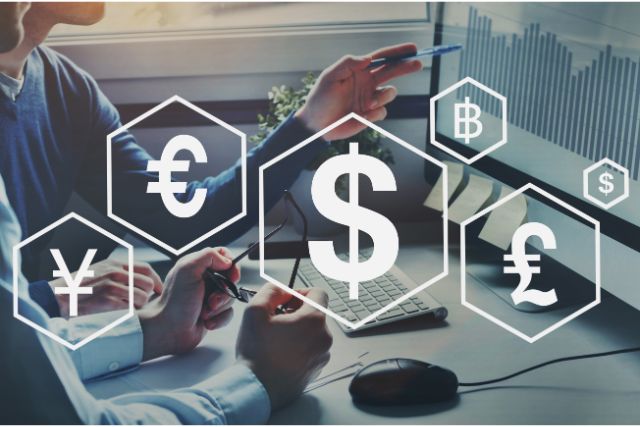Are you interested in the field of forex trading? Your beginner’s guide to how to trade forex successfully step by step. Learn with this guide how to trade forex successfully
If you have ever looked into the world of investing, you may have heard the term “forex trading”. You probably know some people who have made or lost a lot of money through forex trading. Here, we break down the basics of forex trading and help you get started in this exciting field with the help of the Value Champion blog.
What is forex?
Forex is an abbreviation for foreign exchange trading. Other names commonly used in the market are forex and currencies. Forex trading is an activity in which speculators engage in the global financial markets with the aim of profiting from price movements between currencies.
Example: Suppose you buy 1,000 units of US dollars when the exchange rate is 1.30 Singapore dollars for 1 US dollar. This trade will cost you S$1300. A week later, the Singapore dollar has weakened to 1.40 SGD against the US dollar and you decide to sell your currency. You made a profit of 0.10 SGD per unit x 1000 units = a total profit of 100 SGD.
Who can trade forex?
Anyone can participate in forex trading but must use a licensed broker or dealer to gain access to the market. Individual participants in the forex market are referred to as retail traders, while banks, corporations and large funds are called institutional traders.
Where is the forex market located? What are the trading hours?
Unlike stocks and commodities, currencies are not traded on an exchange. The forex market consists of a global network of computers connecting licensed traders, brokers, banks and institutions.
The foreign exchange market does not have official trading hours. You can place a trade whenever your chosen platform allows, which is usually 24 hours a day from Monday to Friday.
What is the size of the forex market?
The forex market is by far the largest and most liquid financial market in the world. Its trading volume is $5.3 trillion a day, 30 times greater than the trading volume of the New York Stock Exchange (NYSE), one of the largest stock markets in the world. The high volume and liquidity in the forex market is beneficial for traders because entry and exit are instant since there are always available counterparties for trading.
Is forex trading profitable?
Yes. All financial investments and speculation carry risks, but foreign exchange activities carry higher risks due to the use of leveraged trading. You can lose more than the money in your trading account.
How is leveraged trading done?
Simply put, the broker is lending you money to trade currencies and asking you to pay a security deposit upfront just to cover any losses. Leverage is popular with retail traders as they can take larger positions in the market and take advantage of even small currency movements. However, the flip side is also true, i.e. when the market moves against you, your potential losses are also magnified.
Let’s look at an example. You only have 1000 SGD of your own money to trade forex. To make your returns, you decide to borrow 1500 SGD from your broker and trade with more capital (1000 SGD + 1500 SGD = 2500 SGD). If you make a 10% return, you will eventually get a profit of S$250. After paying off your debts, you end up with a 25% return on your S$1000 capital, which is much more than you would have made on your money with the same 10% return (S$100). In this example, we assume that the interest you pay on the amount borrowed is very small.
On the flip side, if you lose money on your trade, your loss will also be magnified. Let’s say you have 1000 SGD back and you borrow another 1500 SGD, but you lose 10% of your trade. Since you have to return the S$1,500 you borrowed, you will be left with S$750 of your own money, which translates to a 25% loss instead of the 10% loss you would have incurred.
Do people make money from forex trading?
There are many traders in history who have made huge fortunes, or at least partially, from forex trading. To name a few, George Soros has a net worth of $24 billion, Stanley Druckenmiller is worth $4 billion and Steve Cohen is worth $13 billion.
